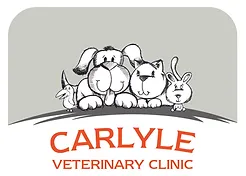Puppies and dogs are just great companions. Whether you are young or old the enthusiasm that a dog has for life is infectious. Their unconditional love and loyalty to their owner is heart-warming.
Dogs and puppies need you to take care of them, which include grooming, feeding and making medical decisions. Vaccinations and regular booster shots are one of those decisions.
The importance of vaccinations
Every dog owner wants to keep their dog happy and healthy for as long as possible. Vaccinations reduce the severity of infections or prevent the spread of certain viruses. There is little to no side-effects in most vaccination cases.
It is mandatory to vaccinate your dogs. The vaccination policy not only protects your dog from the viruses, but all the dogs in your community.
Core and non-core vaccinations
There are two different types of vaccinations. Core and non-core. The core vaccinations are mandatory for all dogs. Dogs and puppies that are at risk for other infections need non-core vaccinations.
Core vaccinations for dogs:
- Canine Distemper Virus – is a very serious virus which is easily spread. The deadly virus causes watering eyes, coughing, loss of appetite, lethargy and neurological symptoms. Canine distemper has a 80% fatality rate in puppies.
- Canine Adenovirus– There’s two different kinds of Canine Adenovirus, type 1 and type 2. You do not need a separate vaccination for type 1 and type 2. There is one vaccination for both.
- Canine Parvovirus – is spread through direct contact with infected dogs. It is a highly contagious virus, that affects both dogs and puppies. Canine Parvovirus causes lack of interest or lethargy, loss of appetite, vomiting and diarrhoea with blood in the stool. The Parvovirus is treatable but early detection is key.
These are the viruses which every dog needs to be vaccinated against, the C3 vaccination is a combined injection for these viruses.
Non-core vaccinations for dogs:
Dogs that are at risk are recommended to have the non-core vaccinations. The vet will need information like the area you are keeping the dog, whether or not you go to dog parks or whether your dog spends any time in kennels.
- Canine Parainfluenza virus – Coughing and respiratory infections like canine cough is a result of this virus. The canine parainfluenza virus is a contributing factor to kennel cough. Spending time with other dogs especially in enclosed areas puts your dog at risk. Coughing, sneezing and direct contact spreads the virus from the infected dog to nearby dogs.
- Bordetella Bronchiseptica – Puppies and dogs that go to parks, puppy school or kennels need the Bordetella vaccine. This virus causes infection in the dog’s respiratory system. The virus spreads through touch, sneezing and coughing and Bordetella Bronchiseptica is another contributing virus to kennel cough.
- Leptospirosis bacteria – the vaccines for this virus is given to dogs that come in regular contact with stagnant water or other life stock. The bacterium attacks the dog’s entire body. From the kidneys to the liver, reproductive system and nervous system. Animals that are infected with the leptospirosis bacteria spread it through their urine. Leptospirosis is zoonotic which means it can spread across different animals, for example from cattle to dogs and dogs to humans.
- Rabies virus – Dogs born and raised in here do not need a rabies vaccine. Those imported to the country will need a vaccination history provided during the import process. Animals leaving leaving the country may need a vaccination before their departure.
Vaccination Schedule
You will need to find out any vaccination history you can from the breeders or the shelter. Your vet needs the puppy or dogs medical history to determine if they are on schedule, and healthy enough to receive the vaccine.
Puppies need to receive their first core vaccinations at around 8 weeks. The core vaccinations are often combined into one injection known as C3. At 12 weeks the C5 vaccination is administered. Some vaccines need a second booster (third vaccine) at 16 weeks.
Vaccinations wear off over time so to keep your dog protected they get booster shots with their annual check-ups.
Please note these schedules can vary, please consult your vet as to the best schedule for your pet.
Are vaccines safe?
The short answer is yes. There have been cases of anaphylactic reactions to the vaccine but they are rare and treatable. Vaccines are a lot less harmful than the illnesses they are targeting. Your dog’s immune system needs to create antibodies to fight illness causing viruses and bacteria, vaccines prompt the body to make the antibodies. Vaccines do not completely prevent your pet from getting the illness. They reduce the threat and the severity of the illness. To create a vaccine scientists use a weakened version, or a non-threatening part of the virus.
You should always keep an eye on your puppy or dog after they have had their injections. There are a few side effects, including sensitivity, lethargy and a bit of a fever. The side effects usually last between 24 to 48 hours, if the symptoms increase in severity or if it carries on for more than 48 hours you need to contact the vet.

